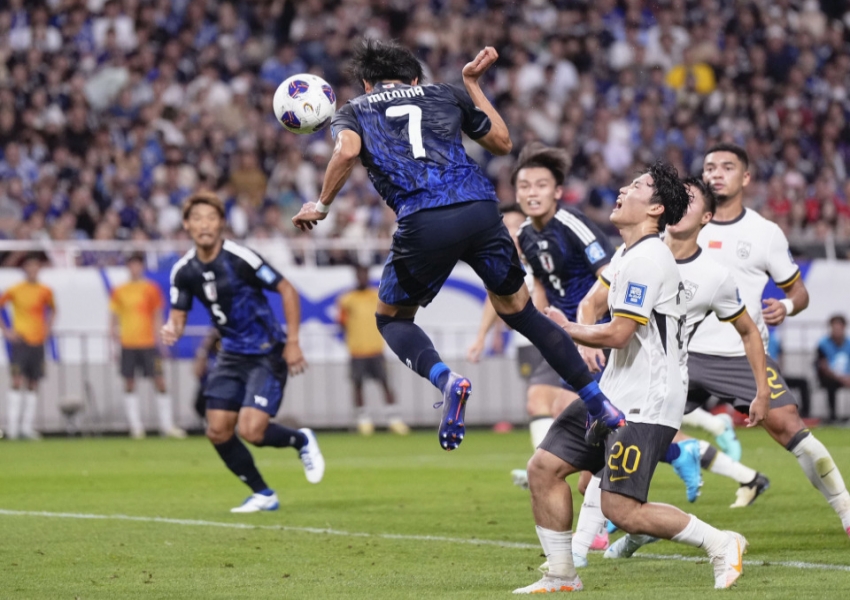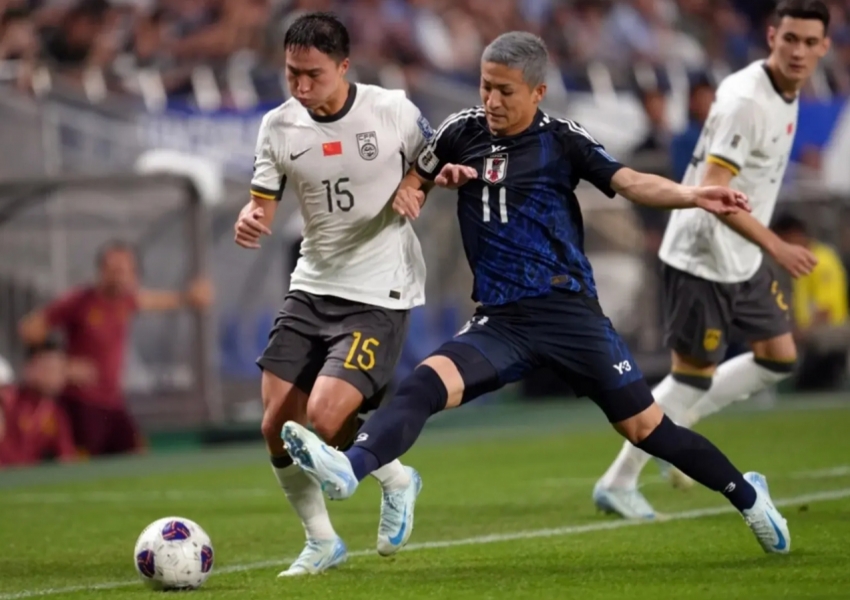AFC World Cup Qualifiers: China Confident Against Saudi Arabia, Indonesia No Longer a Minnow
On the evening of September 10, the AFC World Cup Qualifiers for the 18-team round continued, with matches showcasing the unpredictability of Asian football. The Chinese national football team finds itself at a historic low point, but this doesn't mean that Saudi Arabia is faring much better. Given that China has never lost to Saudi Arabia in an official match held on home soil, there is reason to believe that China can defend its honor at home. On the other hand, Indonesia, bolstered by naturalized players, has significantly improved its squad, while Australia appears to be on a downward trajectory. The evolving dynamics between these two teams make their encounter difficult to predict, with many expecting a 50-50 battle.

China vs. Saudi Arabia - Defending Home Pride
China's opening match in this round of qualifiers ended in a heavy defeat, which led to widespread anger among casual fans. However, those who regularly follow Chinese football may have taken the loss in stride, as the manner of defeat was familiar. Typically, China’s opponents don’t need to exert much effort to score, while China rarely mounts an all-out response. This passive approach was also evident in their recent match against Japan.

China’s initial strategy against Japan seemed to be one of minimal resistance, hoping that their opponents would take a couple of goals and ease off. This was a pattern that played out in the previous World Cup qualifying cycle when China faced Japan. However, Japan had no intention of following the expected script this time. The stakes are higher in this cycle, with only the top two teams in each group earning automatic qualification. With Japan, Australia, and Saudi Arabia all having participated in the last World Cup, the competition is fierce, and goal difference could become crucial. Japan, therefore, sought to maximize their opportunities and played with consistent intensity throughout the match.

While Japan did not appear to be pushing for a massive victory, they managed to dismantle China's defense at a steady pace. The lack of urgency in China's response left them exposed. One point of frustration for fans was China’s vulnerability in the air, with players like Mitoma and Maeda scoring headed goals despite neither being particularly tall (both stand under 1.8 meters). However, it's worth noting that these goals came from well-executed passing plays that left Chinese defenders out of position, making height irrelevant in those situations.
After the match, several well-known figures from Chinese football voiced their criticisms. Former player Fan Zhiyi, a respected yet increasingly media-centric figure, made headlines for his remarks. Fan suggested that while it’s acceptable to lose, the team should at least put up a more respectable fight. This sentiment resonates with fans, especially given Fan's experience as a player in the 1990s when China regularly competed with Japan on relatively equal terms. However, Fan’s coaching career has been less illustrious, and he is now more recognizable for his television appearances than his tactical insights.
Saudi Arabia, despite their own struggles, will pose a significant challenge for China. In their first match of this round, Saudi Arabia was held to a surprising draw by Indonesia. While the Saudis dominated possession and had more chances, they were unable to break down Indonesia’s defense, which was bolstered by several naturalized players of Dutch-Indonesian descent. This led some commentators to quip that Saudi Arabia was essentially playing against a Dutch second-tier team.
One critical decision by Saudi coach Roberto Mancini raised eyebrows: he chose not to start the team's top star, Al-Buraikan, whose recent transfer commanded a fee of nearly 10 million euros. Al-Buraikan only came on as a substitute with 30 minutes left in the match, but he failed to make an impact and seemed to fade into the same lethargy that had afflicted the rest of the Saudi squad.
For Saudi Arabia, this match against China represents a must-win scenario. They have yet to secure an away victory against China in an official competition, with their last World Cup qualifying encounter ending in a narrow home victory and a draw at a neutral venue. Both teams may be under pressure, but given Saudi Arabia’s current form, they could struggle to impose themselves at a Chinese home ground where they have never secured a win.
Indonesia vs. Australia - The Limits of Naturalization
Indonesia’s football fortunes have improved drastically, largely thanks to their aggressive naturalization policies. Though Indonesia doesn’t have the financial clout of Qatar, which has used naturalized players to win back-to-back AFC Asian Cup titles, they have made steady progress. Indonesia’s historical ties to the Netherlands, stemming from centuries of colonial rule, have made it relatively easy for the country to find players of mixed Dutch-Indonesian heritage. Many of these players have significant professional experience in European leagues, giving Indonesia a much-needed boost in quality.
On the other hand, Australia’s football team has been in decline ever since they moved to the Asian Football Confederation (AFC). While the "Socceroos" continue to benefit from their physical prowess, their technical ability and speed on the ball have waned. As a result, they have found it increasingly difficult to compete with the top teams in Asia. In their first match of this qualifying round, Australia hosted Bahrain, but their performance was far from convincing. A series of reckless fouls throughout the game showed a lack of discipline, and by the 77th minute, striker Martin Boyle was sent off for a dangerous challenge. It could have been worse for Australia, as the referee was lenient on several earlier incidents that could have resulted in penalties or additional red cards.
In a twist of fate, it was Harry Souttar, a defender who escaped punishment for a potential red card offense, who ended up scoring an own goal in the final minute of regular time, handing Bahrain an unexpected victory. Souttar, who recently helped Leicester City earn promotion to the Premier League, joined Sheffield United on loan for this season. His arrogance on the pitch may have stemmed from playing at a higher level than his teammates, but it ultimately cost Australia dearly.
Indonesia, with their revitalized squad, now sees Australia as a beatable opponent. Gone are the days when Australia was the dominant force in Asia; now, they are vulnerable, especially to teams that combine speed, technical skill, and the kind of experience that Indonesia’s naturalized players bring. This match could be a close contest, with both teams likely to showcase only a fraction of their true potential.
Indonesia’s naturalization program may not have reached the heights of Qatar’s, but it is certainly bearing fruit. With a core of Dutch-Indonesian players bringing a wealth of European experience, Indonesia has transformed into a formidable opponent. Meanwhile, Australia’s reliance on their traditional strengths of size and physicality is becoming increasingly outdated, especially in a region where technical ability and speed are now paramount.
The outcome of this match is difficult to predict. Indonesia is on the rise, while Australia is clearly on a downward trend. Both teams could end up neutralizing each other, resulting in a match where neither side is able to fully capitalize on their strengths. As such, a draw would not be a surprising result.
Copyright Statement:
Author: mrfootballer
Source: Mrfootballer
The copyright of this article belongs to the author. Reproduction is not allowed without permission.
Recommended Blog
- AFC Asian Qualifiers: China Can Accept a Modest Defeat, Saudi Arabia Eyes a Big Win
- Inter Milan's Champions League Squad Decision: New Signing Faces Immediate Setback Despite Internal Summit
- J. League Cup: Is Yokohama F. Marinos' Revival Truly Comprehensive? Sanfrecce Hiroshima Aiming for Success on Multiple Fronts
- Brazilian Team Controversy: Why Is the Most Expensive Left-Back Overlooked? Pavard's Dilemma and Inter Milan's Lucky Charm
- EFL Trophy: Peterborough United Begin Title Defense, Huddersfield Town Must Adapt to the Format
- Milan Derby to Decide AC Milan Manager's Fate
- Why Inter Milan Leads in Penalty Awards and Has the Fewest Cards Since Last Season
- Inter Milan's Sharpshooter Brings Joy and Hope to the Team
- Serie A Round 3: Inter Milan Showcases New Signings, Torino Sets an Attacking Tone
- AFC Champions League Playoff Preview: Shanghai Port Rely on Wu Lei, While Al Nassr Are More Than Just Cristiano Ronaldo
Hot Blog
- Man City’s 21-Year-Old Star Returns Home as a Hero! Receives $350,000 Mercedes, Gifts It to His Father
- AFC Champions League Quarterfinal Draw: Yokohama Faces CR7! Two High-Stakes Clashes as Japan’s Duo Battle in the Bottom Half
- 175 Days on the Sidelines! Barça’s 32-Year-Old Guardian Dreams of a Champions League Comeback
- Simeone’s 8 Days of Nightmare: Champions League Exit and Two La Liga Collapses
- Messi Turns Magician with Both Feet: A 3-Second Masterclass That Left Three Defenders Helpless
- English Media: Manchester United Will Win Premier League Title in 2028! History Will Repeat Itself, Two Teams Serve as Inspirations
- 0-2 Double Defeat! China National Team Stuck at 6 Points: No More Direct World Cup Hopes, Two Crucial Matches Ahead
- China National Football Team Drops 13.6 Points, Slips to 94th in FIFA Rankings: Syria Overtakes, New 9-Year Low
- 0-0 Draw! Japan 12 Shots, 2 Missed One-on-Ones: 8 Matches, 20 Points, Group Winner, Saudi Arabia Stuck at 10 Points in 3rd
- 4 AM Showdown: Barcelona's Revenge Match! Win = 3-Point Lead Over Real Madrid, Key Players Rested